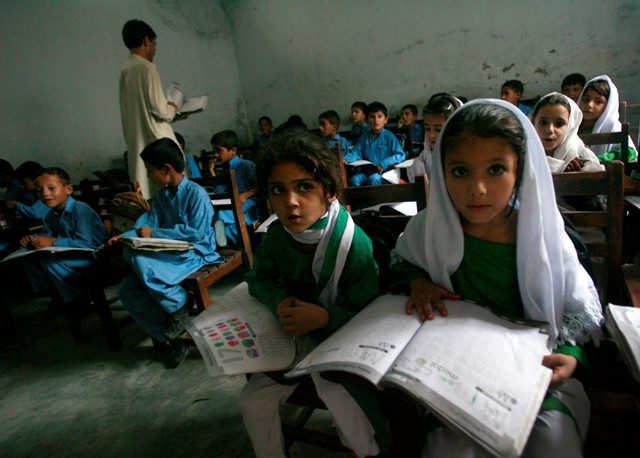Islamabad:
A 20% increase in registrations in Pakistan’s non-formal education sector, according to the statistical report of 2023-24, non-formula training (NFE).
The document has been released by the Pakistan Institute of Education (PIE).
Non-formula education has been described as a “second chance model” that is cost-effective, flexible and community-based. The monthly costs per Children vary between Rs 1,000 to RS1.500, significantly lower than the cost of formal education systems.
The annual report presented a detailed snapshot of the country’s non-formal learning landscape that spotlights both results and sustained gaps. The number of non-formal educational centers across the country has reached 35,427, which earns over 1.29 million students, reflecting a 20% increase in registration compared to the previous year.
The report notes that by 2023-24, registrations in non-formal education centers grew by 20%, with 57% of students being girls marking a promising step towards gender parity. Female teachers make up 82% of the workforce and demonstrate strong female participation in the non-formal education system.
A total of 3,382 centers of adult literature are currently operational and serves 80,093 students, indicating an increasing focus on youth and adult literature. In addition, 10,181 refugee children, mostly from Afghanistan, have signed up for NFE programs. Innovative models such as ALP (Middle-Tech) have been introduced, which integrates both academic and business skills to improve detention and results.
Despite the progress, the report highlights significant regional differences, especially in the registration rate across remote and underestimated areas. According to Pakistan Economic Survey, female literacy remains significantly lower than male literacy, especially in rural Balochistan, where only 31% of women are reading. The latest UN report ranks Pakistan 164. Out of 193 countries on the Human Development Index (HDI) and 144 out of 173 on the Human Capital Index (HCI), where education is an important contributing factor.
Among the report’s key recommendations is the expansion of ALP programs, especially the Middle-Tech model, which boasts a 70% completion rate.



